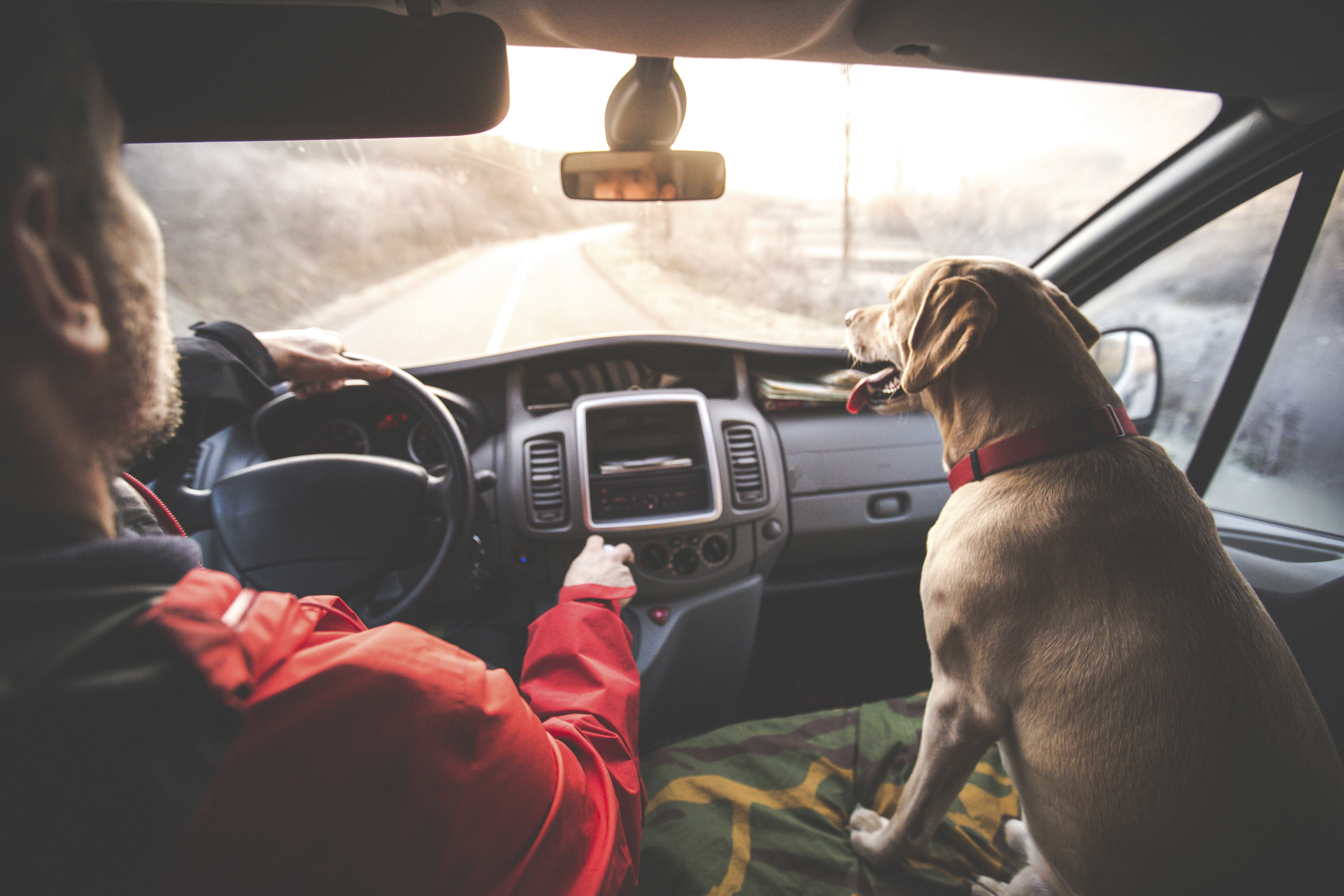Blog
Are We There Yet? Understanding Pets With Car Anxiety
 Even with our knowledge of auto mechanics, barreling down the road in a metal box is disconcerting when you stop to think about it. Sure, we have road rules and driver’s tests (not to mention airbags), but try telling a pet with an intense fear of car travel that it will all be “OK.”
Even with our knowledge of auto mechanics, barreling down the road in a metal box is disconcerting when you stop to think about it. Sure, we have road rules and driver’s tests (not to mention airbags), but try telling a pet with an intense fear of car travel that it will all be “OK.”
Of all the common animal behaviors, pets with car anxiety top the list. Fortunately, there are supportive strategies to help soothe your pet’s nerves.
Narrowing it Down
There are notable differences between fear, anxiety, and phobia. Recognizing your pet’s fear is an excellent first step, but early intervention is necessary to prevent anxiety and full-blown phobia.
Pets With Car Anxiety
Your pet is equipped with a memory-storing brain, and fear-inducing moments inform future reactions. In addition to early experiences, your pet’s breed and personality also affect how he or she responds to stressful stimuli.
Physiological Stress Response
Your pet’s anxiety is proportional to the stimuli. If he or she had an intense or traumatic experience in or around a vehicle, your pet may continue to live in a state of dread. The “fight or flight” instinct will be the only response to entering the car, and this reaction can worsen without intervention.
If your pet’s symptoms inhibit general relaxation, relative happiness, or the ability to eat or drink, it’s time to focus on ways to reverse the emotional and physical stress.
Making it a Habit
Pets with car anxiety benefit from habituation. This means you should provide opportunities for your pet to make new associations with a car that are positive and rewarding. Many pets are calmed by reassurances. Remember, you are your pet’s role model; he or she will take cues from you. Stay relaxed and react calmly when your pet:
- Vocalizes excessively
- Paces
- Pants
- Climbs
- Clings to you
- Retreats
- Grooms repeatedly
- Attempts to escape
- Acts aggressively or destructively
Your pet is seeking attention, and reprimanding unwanted behaviors like this will not alleviate his or her anxiety.
If This, Then That
You can help your pet achieve social, mental, and emotional stability by exploring different coping methods for him or her. May we recommend:
- Sticking to a routine
- Offering rigorous exercise prior to exposing your pet to a car
- Providing safe places for your pet to return to when stressed
- Purchasing a Thundershirt or other pressure garments to reduce anxiety
- Playing with your pet to distract him or her
- Never leaving your pet unattended in a car
Some pets with car anxiety may need other supportive services, behavioral therapy, or medication. Our compassionate doctors and staff are always striving to help your pet achieve maximum comfort and health. Please contact us with any questions or concerns.
